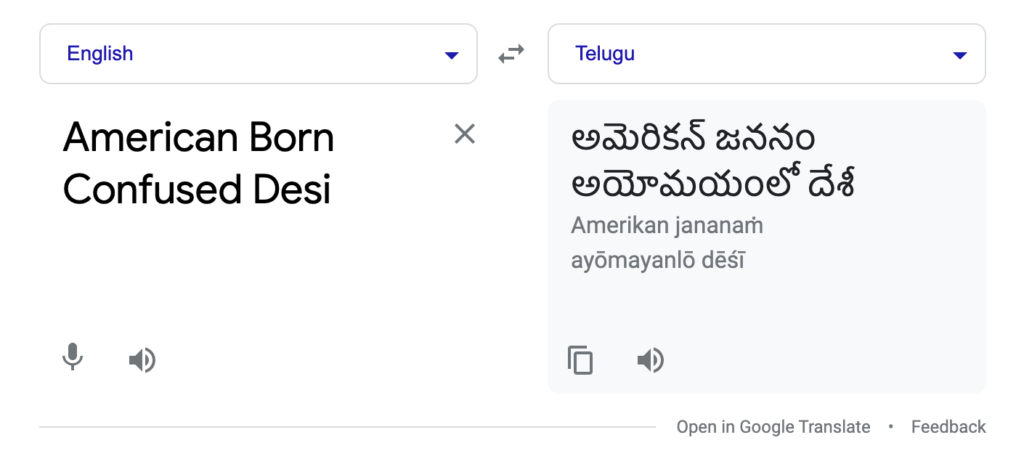ABCD. American Born Confused Desi. These four words have dictated the direction of my entire life. They have shadowed every decision I ever made, from whom my friends were to the clothes I wore. They have dictated my way of talking, my morals, and my expectations. These four words have played a significant role for nearly 4.2 million people here in the US, and as I try to dig deeper into this prominent part of my identity, I am one of many who struggle to differentiate the good from the bad. The healthy from the toxic.
One of the biggest struggles an ABCD may face is feeling out of place when we visit India. Often, we may feel like the black sheep, the one who is too American for everybody there. My parents always had me speak Telugu whenever we went to India. One time, they sat me down and had me say Telugu words such as “visuku” (annoyed) and “illu” (home). As a confused 8-year-old, I proudly said all the words I knew and watched as they began to laugh. With each disappointed yet amused expression my family gave me, my American accent began to slip through due to anxiety, and I felt embarrassed as my face went red.
On the other hand, many of us face the struggle of wondering if we are too Indian. In elementary school, I was always too afraid to bring my food to school or eat chapati with my hands, fearing what my classmates would think. I was so scared to talk about Indian music that I forced myself to listen to typical radio music for fear of not fitting in.
All my life, I felt like I had to be a part of some cliche. Whether that was the intelligent brown kid or the outspoken feminist, I was determined to have some idea of who I was. Starting high school was an eye opener that groups don’t have to exist, and I realized I can be an American and an Indian. I learned to have more compassion for myself. After all, we aren’t books to belong in a genre on a shelf. There are no strict lines you cannot cross. Instead, the lines are dashed and often overlap. The cliches we cling to as young children are fated to disintegrate as we grow up to be parts of friend groups without criteria.
See, there is no way to “fix” whatever mindset we have automatically. It has been drilled in us that we are too American for India and too Indian for America, and it takes time to accept that we are both American and Indian. We are in the gray area, and that is perfectly fine. The world isn’t black and white. Although there may not be any on-the-paper solutions to dealing with this, the best thing we can do is to navigate our identities on our terms.
